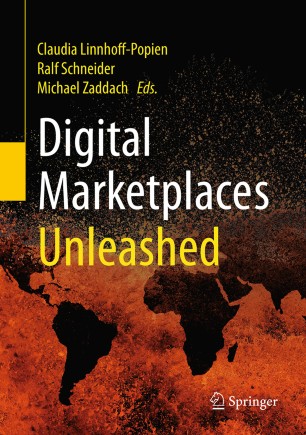 |
Dr. Robert Müller Lehrstuhl für Mobile und Verteilte Systeme Ludwig-Maximilians-Universität München, Institut für Informatik Oettingenstraße 67 LinkedIn, Google Scholar, romue404.de Raum Telefon: Fax: |
Ich habe die Universität zum 31.12.2023 verlassen.
🎓 Research Interests
- Deep Learning (especially on audio)
- (Acoustic) Anomaly Detection
- Self-Supervised Learning / Representation Learning
- (Safe) Reinforcement Learning and Ad Hoc Teamwork
PhD Thesis
- Müller, Robert Kurt Georg (2023): Repräsentations- und Transferlernen für Anwendungen des maschinellen Lernens. Dissertation, LMU München: Fakultät für Mathematik, Informatik und Statistik [📚LMU-Bib]
📚 Publications
- Robert Müller, Steffen Illium, Thomy Phan, Tom Haider and Claudia Linnhoff-Popien, „Towards Anomaly Detection in Reinforcement Learning“, AAMAS 2022 (Blue Sky Ideas Track) [📄PDF]
- Robert Müller, Steffen Illium and Claudia Linnhoff-Popien, „Deep Recurrent Interpolation Networks for Anomalous Sound Detection“, IJCNN 2021. [📄IEE Xplore]
- Robert Müller, Steffen Illium and Claudia Linnhoff-Popien,“A Deep and Recurrent Architecture for Primate Vocalization Classification“, INTERSPEECH 2021. [📄PDF]
- Robert Müller, Steffen Illium, Fabian Ritz and Kyrill Schmid,“Analysis of Feature Representations for Anomalous Sound Detection“, ICAART 2021. [📄arXiv]
- Robert Müller, Steffen Illium, Fabian Ritz, Tobias Schröder, Christian Platschek, Jörg Ochs and Claudia Linnhoff-Popien,“Acoustic Leak Detection in Water Networks“, ICAART 2021 (best industrial paper candidate). [📄arXiv]
- Robert Müller, Fabian Ritz, Steffen Illium and Claudia Linnhoff-Popien,“Acoustic Anomaly Detection for Machine Sounds based on Image Transfer Learning“, ICAART 2021. [📄arXiv]
- Robert Müller, Stefan Langer, Fabian Ritz, Christoph Roch, Steffen Illium and Claudia Linnhoff-Popien,“Soccer Team Vectors“, Machine Learning and Knowledge Discovery in Databases: International Workshops of ECML PKDD 2019, Springer, 2019, pp. 247-257. [📄arXiv]
- Jonas Nüßlein, Steffen Illium, Robert Müller, Thomas Gabor, Claudia Linnhoff-Popien „Case-Based Inverse Reinforcement Learning Using Temporal Coherence“ accepted at ICCBR 2022.
- Andreas Sedlmeier, Michael Kölle, Robert Müller, Leo Baudrexel and Claudia Linnhoff-Popien, „Quantifying Multimodality in World Models“, ICAART 2022. [📄arXiv]
- Steffen Illium, Thore Schillman, Robert Müller, Thomas Gabor and Claudia Linnhoff-Popien, „Empirical Analysis of Limits for Memory Distance in Recurrent Neural Networks“, ICAART 2022 [📄arXiv]
- Kyrill Schmid,Lenz Belzner, Robert Müller, Johannes Tochtermann and Claudia Linnhoff-Popien, „Stochastic Market Games“, IJCAI 2021. [📄PDF]
- Kyrill Schmid, Robert Müller, Lenz Belzner, Johannes Tochtermann and Claudia Linnhoff-Popien, „Distributed Emergent Agreements with Deep Reinforcement Learning“, IJCNN 2021. [📄IEE Xplore]
- Fabian Ritz, Thomy Phan, Robert Müller, Thomas Gabor, Andreas Sedlmeier, Marc Zeller , Jan Wieghardt, Reiner Schmid, Horst Sauer, Cornel Klein and Claudia Linnhoff-Popien, „SAT-MARL: Specification Aware Training in Multi-Agent Reinforcement Learning“, ICAART 2021. [📄arXiv]
- Fabian Ritz, Thomy Phan, Robert Müller, Thomas Gabor, Andreas Sedlmeier,
Marc Zeller, Jan Wieghardt, Reiner Schmid, Horst Sauer, Cornel Klein, and
Claudia Linnhoff-Popien. “Specification Aware Multi-Agent Reinforcement Learning”, Agents and Artificial Intelligence, Springer International Publishing, 2022. . [📄PDF] - Steffen Illium, Robert Müller, Andreas Sedlmeier and Claudia Linnhoff-Popien, Visual Transformers for Primates Classification and Covid Detection, INTERSPEECH 2021. [📄PDF]
- Steffen Illium, Robert Müller, Andreas Sedlmeier and Claudia Linnhoff-Popien, Surgical Mask Detection with Convolutional Neural Networks and Data Augmentations on Spectrograms, INTERSPEECH 2020. [📄arXiv]
- Steffen Illium, Philipp Friese, Robert Müller and Sebastian Feld, „What to do in the meantime: Analysis of Service Coverage for Parked Autonomous Vehicles“ in AGILE GIScience Ser., 1, 7, 2020. [📄PDF]
- Andreas Sedlmeier, Robert Müller, Steffen Illium and Claudia Linnhoff-Popien, „Policy Entropy for Out-of-Distribution Classification,“ in Artificial Neural Networks and Machine Learning — ICANN 2020, Cham, 2020, pp. 420-431. [📄arXiv]
- Fabian Ritz, Felix Hohnstein, Robert Müller, Thomy Phan, Thomas Gabor, Carsten Hahn and Claudia Linnhoff-Popien, „Towards Ecosystem Management from Greedy Reinforcement Learning in a Predator-Prey Setting„, in Artificial Life Conference Proceedings, MIT Press, 2020, pp. 518-525. [📄PDF]
- Christoph Roch, Thomy Phan, Sebastian Feld, Robert Müller, Thomas Gabor and Claudia Linnhoff-Popien, „A Quantum Annealing Algorithm for Finding Pure Nash Equilibria in Graphical Games“ in International Conference on Computational Science, Springer 2020, pp. 488-501. [📄arXiv]
- Stefan Langer, Robert Müller, Claudia Linnhoff-Popien and Kyrill Schmid, „Difficulty Classification of Mountainbike Downhill Trails utilizing Deep Neural Networks“, Machine Learning and Knowledge Discovery in Databases: International Workshops of ECML PKDD 2019, Springer, 2019, pp. 270-280.[📄arXiv]
- Daniel Elsner, Stefan Langer, Fabian Ritz, Robert Müller and Steffen Illium, „Deep Neural Baselines for Computational Paralinguistics“, in Proc. Interspeech 2019, ISCA Archive, 2019, pp. 2388-2392. [📄arXiv]
- Thomy Phan, Thomas Gabor, Robert Müller, Christoph Roch and Claudia Linnhoff-Popien, „Adaptive Thompson Sampling Stacks for Memory Bounded Open-Loop Planning“ in 28th International Joint Conference on Artificial Intelligence (IJCAI ’19), 2019. [📄PDF]
📚 Preprints
- …
👷♀️ Offene Arbeiten
Bei Interesse an einem der ausgeschriebenen Themen einfach eine E-Mail schreiben.
Gerne können Sie sich auch jederzeit mit einer eigenen Idee in meinem Forschungsbereich bei mir melden. Da Ich die Universität zum Ende des Jahres verlasse kann ich leider keine Erstbetreuung von Abschlussarbeiten mehr übernehmen.
❗ Hinweis zu Abschlussarbeiten
Für Einzelpraktika (EP), Bachelorarbeiten (BA) und Masterarbeiten (MA) muss eine gewisse Einarbeitungszeit eingeplant werden die sich an den Vorkenntnissen des Studierenden orientiert.
Die Bearbeitungszeit liegt bei bis zu 20 Wochen bei einer BA und bis zu 26 Wochen bei einer MA. Der Bearbeitungszeitraum eines EP umfasst ein Semester.
Antworten auf Anfragen sind nicht als Zusage für die Betreuung zu werten.

